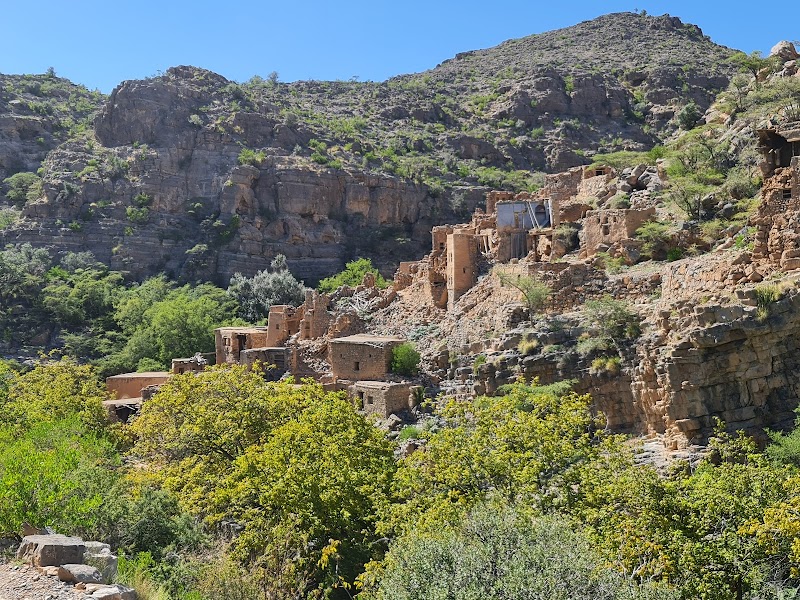
Experience the Spirit of Oman: The Nizwa Cultural Festival Unveiled
Join the annual Nizwa Cultural Festival to experience authentic Omani traditions in a dynamic setting filled with music, crafts, and heritage displays. Discover how to make the most of this immersive event with practical tips for timing, navigation, and cultural engagement.
Dress for Layering
Oman's desert climate swings from warm days to cool nights; packing breathable layers and sun protection keeps you comfortable throughout the festival.
Wear Comfortable, Closed-toe Shoes
Expect to walk on paved, sandy, and uneven surfaces around the fort and souq; durable footwear helps you navigate safely and comfortably.
Stay Hydrated
Carry a refillable water bottle and drink regularly, especially during midday outdoor activities, to prevent dehydration in the dry air.
Arrive Early for Key Events
To secure good viewing spots for falconry, camel races, and storytelling sessions, plan to arrive before the main activities begin in the morning.
Experience the Spirit of Oman: The Nizwa Cultural Festival Unveiled
The Nizwa Cultural Festival is more than an event; it is a vibrant immersion into the heart of Oman's heritage, set against the dramatic backdrop of the ancient city of Nizwa. Each year, the festival transforms the historic Fort's shadow into a lively hub where tradition meets celebration. Visitors are greeted by the call of the oud and the rhythm of folkloric dances, drawing you into a world where every corner tells a story.
The festival runs over several days, usually between late January and early February, taking advantage of the cool, inviting weather that enables exploration without the sweltering desert heat. Markets filled with artisans offering silver jewelry and hand-woven textiles pulse with energy, while the aroma of Omani spices and grilled delicacies invites taste explorers to savor local flavors. Venturing through the souq, you hear the clink of khanjar blades, the traditional curved dagger, and see camel races and falconry demonstrations—both fiercely proud displays of Omani skill and heritage.
This experience isn’t just for spectators. Workshops encourage hands-on participation in pottery making, weaving, and traditional cooking. The terrain here is largely flat, with the historical architecture providing ample shade and resting spots. The festival’s layout is practical for families, seasoned travelers, and anyone eager to connect culturally without straining physically.
Planning a visit requires some considerations. The desert climate shifts rapidly—from bright sun by day to cool evenings—so packing layers and sun protection is essential. Comfortable walking shoes are a must; while the paths are well-maintained, you’ll spend hours on your feet wandering through alleys and open spaces. Hydration is simple: bottled water stations are plentiful, but bringing your own refillable bottle supports responsible travel.
Timing your visit helps too: arrive in the morning to catch falconry hunts and heritage parades when the air is brisk and the light sharp for photography. Afternoons invite a slower pace, perhaps sampling dates and coffee with locals, while evenings light up with traditional music under the stars.
The festival isn’t just a cultural showcase—it’s a direct encounter with a place fiercely itself. Its rhythm is set by a community proud of its roots and eager to share them. To experience Nizwa Cultural Festival is to accept an invitation into a living tradition, one that respects the past while embracing every visitor’s curiosity and enthusiasm.
Nearby Trips
All Adventures
Boat Charters
Water Activities
Adventures near Nizwa, Oman
Discover the unique and memorable adventures that make Nizwa, Oman special.
Frequently Asked Questions
What traditional crafts can I see at the Nizwa Cultural Festival?
Expect to see silver jewelry making, traditional pottery shaping, weaving techniques, and the crafting of khanjar daggers. Artisans often demonstrate their skills live in the market area.
Are there opportunities to taste authentic Omani cuisine at the festival?
Yes, several food stalls offer traditional dishes like shuwa (slow-cooked lamb), halwa sweets, and fresh dates. Sampling local coffee served in small cups is also a staple.
Can families with children enjoy the festival?
Absolutely. The festival offers child-friendly sections including camel rides, storytelling, and interactive workshops that engage young minds in Omani culture.
Is English widely spoken during the event?
While Arabic is the primary language, many vendors and guides speak English, ensuring visitors can navigate and communicate with ease.
What cultural etiquettes should I observe during the festival?
Modest dress is appreciated, particularly around religious or formal events. Always ask permission before photographing people, especially during performances or personal interactions.
Are there any environmental concerns when attending the festival?
Visitors are encouraged to respect the historic sites and avoid littering. Using refillable water bottles helps minimize plastic waste, and staying on marked paths protects delicate surroundings.
Recommended Gear
Breathable Sun Hat
Protects your face and neck from direct sun during outdoor activities, especially in open areas around the fort and souq.
Comfortable Walking Shoes
Necessary for long stints on pavement and sandy paths, ensuring comfortable movement and foot protection.
Reusable Water Bottle
Staying hydrated throughout the festival is key; refill stations are available, making this practical and eco-friendly.
Light Jacket or Sweater
Evenings can be cool; a layer provides comfort during late-night music performances and open-air dining.
Local Insights
Hidden Gems
- "View the lesser-known ancient water channels (aflaj) near the fort that still irrigate local farms."
- "Explore the small, quiet cafes behind the souq for authentic dates and coffee away from the crowd."
Wildlife
- "Keep an eye out for the desert lizard species basking on rocky walls and the occasional falcon soaring overhead."
History
"Nizwa Fort dates back to the 17th century and stands as a monument to Oman's strategic and cultural past, hosting many festivals that celebrate its role as the former capital."
